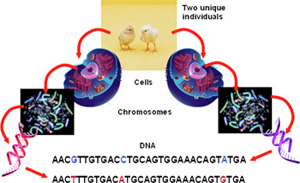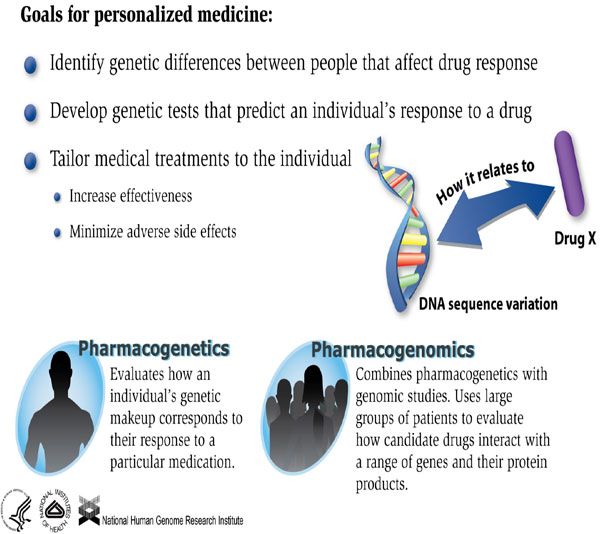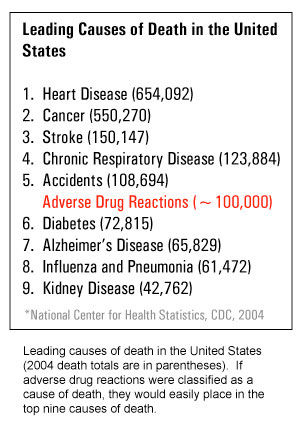Personalized Medicine - page 3
The information on genomic mutation and variation promises to revolutionize the
processes of finding correlations for disease-associated gene sequences.
There are many different types of genetic mutations. One of the types now being
extensively studied is a type of genetic variation.
Simply speaking, variation is difference. It's what makes you "you".
In the image above if the top sequence of DNA is considered normal, then the bottom
strand shows 3 single nucleotide changes in the DNA (all in red). These would be called
single-nucleotide polymorphism (SNPs) and may or may not produce a problem in this chick.
Scientists have identified about 1.4 million locations where SNPs mutations occur in humans. When SNPs occur within a gene or in a
regulatory region near a gene, they may play a more direct role in disease by affecting the
gene's function.
SNPs are now thought to be key enablers in realizing the concept of personalized
medicine. Doctors may one day obtain a test that shows an individuals SNP profile. From
this profile, they may know which drug an individual needs and will respond to.
Early in cancer research, it was thought that all cancers began as mutations caused by
mistakes in the genes. Researchers now know that cancer can occur with no
mutations to the DNA, however, the DNA itself is modified, without changing the underlying genetic code. It is these epigenetic "marks" that tell your genes to switch on or off, or to what intensity. It is through epigenetic marks that environmental factors like diet, stress and prenatal nutrition can make an imprint on genes. Unlike genetic damage, epigenetic changes can sometimes be reversed.






